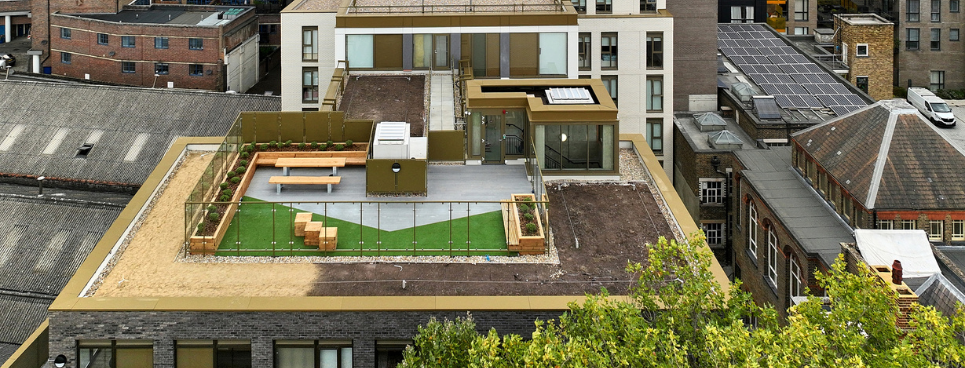News flash! Host Shortlisted for Three Prestigious GSL (Global Student Living) Awards 2025 and Retains Platinum Operator Certification
ROOMS SELLING FAST Find your new home for September

Starting university can be an exciting yet overwhelming time, and there’s a lot to think about when it comes to packing.
If you’re going to university in September, you might be wondering what you should bring with you.
While it’s normal to feel nervous or anxious about starting university, knowing what to pack will put you in better stead to tackle the upcoming move.
When packing for university, you should bring:
University is full of occasions where having formal identification, such as a driver’s licence or valid passport, is essential.
Other important documents to bring include your university acceptance letter, student finance letters, student accommodation contract, scholarship or bursary letters, and your vaccination history for your new GP to name a few.
You’ll also need to make sure that you have a bank debit card and bring any student discount cards you might have.
You’ll also need to bring a range of electricals to aid you through your course and time at university.
Common electricals to take to university include:
Optional electrical items you might want to bring with you include:
Although every university is different, some universities require you to hand in hard copies of assignments. Bearing this in mind, bringing a printer with you can also be a huge help.

When organising what to bring to university, you’ll also need to pack bedding and laundry items.
This will include everything from a duvet to pillows to bed sheets, and packing a laundry basket and drying rack is important so you can do your own washing.
You might also want to pack soft furnishings that will make your student accommodation feel more comfortable and homely, such as blankets and decorative pillows.
The next thing you’ll need to bring to university is clothes and accessories.
As most courses begin at the ‘end of September or the beginning of October every year’, when you first go to university you’ll want to pack transitional clothes that are suitable for autumn and winter.
Some clothes you’ll want to pack include:
You’ll want a few pairs of shoes with you at uni. These will include trainers, going out shoes and smarter shoes you might need for working part-time at university.
Additionally, you’ll want to make sure that you bring plenty of clothes hangers to organise your wardrobe.

If you’re going into self-catered accommodation, you’ll need to bring a range of kitchen essentials so that you can cook for yourself.
University is often the first time you’ll be living independently, and you want to be in the best possible position to cook healthy, nutritious meals to aid your studies.
This is supported by a study that found ‘a quarter of graduates still hadn’t learned to cook even after leaving university’, emphasising how common of a problem cooking can be for students.
If you want to save yourself the cost of regular takeaways, setting yourself up for success with the right kitchen essentials is the first step.
Kitchen essentials you’ll likely need include:
Even if you’re on a meal plan in uni, meaning you don’t need to cook, you might still want to take various kitchen essentials to make your university accommodation feel more like home.
You’ll also want to pack a range of bathroom essentials, toiletries and first aid items.
Bathroom essentials include towels, flannels, toilet paper, and a hair brush. You’ll only need a few basics such as shower gel, shampoo, conditioner, toothpaste, and mouthwash as you can buy most of it there.
Toiletries also include any makeup or skincare products you wish to bring with you.
Lastly, first aid items are important to have on hand. From plasters and painkillers to bandages and antiseptic liquid, bringing a first aid kit with you will provide you peace of mind.

If you’re a UK student, you’ll most likely be at university for a few months at a time before heading home for a range of breaks like reading weeks, Christmas, Easter, and summer.
These breaks mean that you’ll be going home regularly enough to swap out your clothes with the seasons. So instead of packing your entire wardrobe, you can afford to pack light.
If you’re an international student, still try to pack as lightly as possible by packing transitional clothing that can be worn throughout multiple seasons.
While it might be tempting to pack your entire life up to head to university, it’s important to remember that you can buy things once you’re there.
As such, you should try not to over pack as this will likely overwhelm you when it comes to figuring out the logistics of getting all your possessions to your university accommodation.
When you begin university, there is a range of freshers’ fairs and student events that occur during the first few weeks and throughout your course.
These ‘freshers’ fair offers you the chance to discover new interests and sign up for new experiences’, but also give you the chance to pick up stationery items such as pens, notebooks, and USB sticks for free.
Additionally, while it’s recommended to get started on some of your reading lists early, you should wait until your course starts to buy all of your textbooks.
You’ll be able to take some of them out in the library, and some might not be necessary to purchase. As such, waiting until your course starts can help you to save space and money in the long run.
Hopefully this article has given you a wider perspective of some of the essentials you need to bring to university. For more university tips, such as your first big student food shop, check out our student blog page.
Written by Jemima for Host.
To become more ‘environmentally friendly’, Host is launching the #HostEnvironmentalPledge campaign to encourage responsible behaviour and drive sustainability across our sites throughout the UK and Ireland.
It’s a simple campaign! For every percent we reduce our overall utilities (electric, water and gas) consumption by we donate to one of our nominated charities.
Show me all newsAs the academic year winds down, many students start packing their bags and heading home for a much-needed break. But what if you stayed in your university town or city instead? Picking up a summer job where you study can be a game-changer - not just for your bank balance, but also for your personal growth and career prospects. Here's why staying local this summer might be one of your smartest moves yet, along with practical tips to make the most of it.
Choosing where to live during your studies in London is about more than just finding a place to sleep - it’s about finding a supportive, safe, and enriching environment that enhances your university experience. Here's why thousands of students choose Host as their student accommodation provider in London every year.



